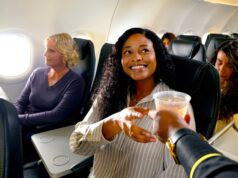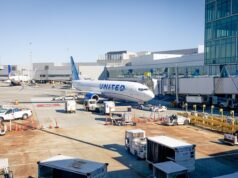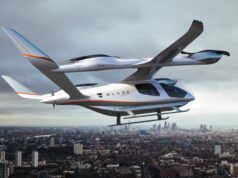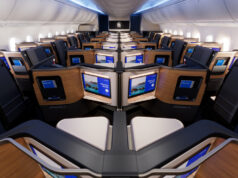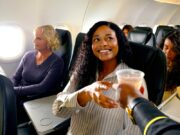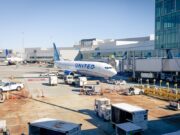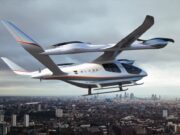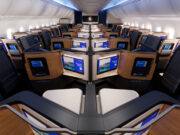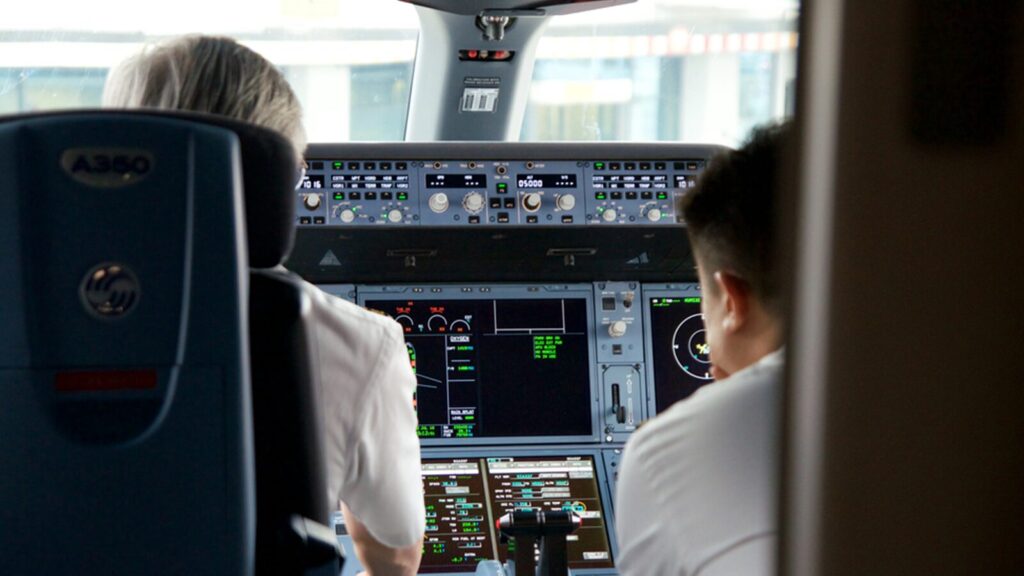
In the aviation industry, the debate over single-pilot operations has intensified dramatically. Despite substantial resistance from labor unions, the European Union Aviation Safety Agency (EASA) is contemplating a change to authorize single-pilot operations in large commercial aircraft. Airbus is at the forefront of this debate, spearheading the development of single-pilot cruise capabilities for its A350 Freighter (A350F). Scheduled for delivery to airlines such as Singapore Airlines and Cathay Pacific by 2027, the A350F could herald a profound transformation in the industry, contingent on approval from EASA and the International Civil Aviation Organization (ICAO) that will introduce a serious degradation of safety into our system. As the industry approaches this pivotal crossroad on single pilot operations, the debate is poised to escalate into a high-stakes confrontation between relentless cost-cutting strategies and labor unions’ commitment to upholding crucial safety standards.
What Is the A350F?
The A350 Freighter is Airbus’s newest addition to the competitive large cargo aircraft market. It is positioned to challenge Boeing’s dominant 777 Freighter. Boeing currently holds a substantial 85%+ share of the air cargo market. The A350F seeks to increase Airbus’ market share with a maximum payload of 109 metric tons, a volume of 1,500 cubic meters, and a range of 4,700 nautical miles. The Boeing 777 Freighter, a long-time favorite, has a payload of 102 metric tons, a volume of 1,410 cubic meters, and a range of 4,900 nautical miles.
Despite the closely matched specifications, the 777 Freighter has achieved greater market adoption, reflecting Boeing’s more substantial presence and proven reliability in the sector. The success of Airbus’s A350F will partly depend on its ability to leverage single-pilot cruise operations, potentially offering a significant economic and operational advantage. This feature could make the A350F a more appealing option than the 777 Freighter since Boeing has not pursued single-pilot cruise certification for the 777 Freighter. Airbus’s push for this capability may be crucial in attracting operators. Major airlines like Cathay Pacific and Singapore Airlines have already placed orders for the A350F, expecting benefits from single-pilot operations. If Airbus can implement this feature, it could shift the balance in the ongoing competition with Boeing.
How Would Single-Pilot Cruise Operations Function?
Airbus envisions that its Enhanced Multi-Crew Operations (EMCO) concept will allow for single-pilot cruise operations by leveraging automation and cockpit systems. According to Airbus, “The A350F's EMCO capability will utilize a sophisticated autopilot and flight management systems to handle many routine tasks, including navigation, monitoring, and communication. During single-pilot operations, these systems will provide increased support through real-time data analysis and alerts, ensuring the pilot remains informed and in control.” However, Airbus has yet to address how EMCO will enhance safety in scenarios such as crew member incapacitation or emergencies compounded by automation failures, like those encountered on Qantas Flight 32. The company’s focus on the economic benefits of EMCO, rather than its safety enhancements, has drawn significant criticism.
Can Airbus Secure Single-Pilot Certification?
The potential certification of single-pilot operations in the U.S. faces obstacles due to strong pilot labor unions such as ALPA (Air Line Pilot Association), which have led Airbus to concentrate its efforts on EASA for now. In Europe, Airbus has argued that single-pilot cruise operations are akin to the controlled rest options currently approved for European pilots. Controlled rest, which allows pilots to take breaks while remaining in their seats, is not permitted for U.S.-registered Part 121 carriers. Airbus might propose that single-pilot operations are a logical extension of the European Controlled Rest concept. It suggests that pilot rest quality could be improved by freeing one pilot to rest in a bunk instead of sitting in their seat. EASA's approval would significantly strengthen Airbus's efforts to secure ICAO's endorsement. Once approved abroad, U.S. carriers would have a strong economic incentive to lobby for similar regulations in the U.S. to improve their ability to compete internationally. As of August 2024, the European Union Aviation Safety Agency (EASA) is actively conducting a comprehensive safety study to evaluate the feasibility and risks of single-pilot cruise operations for the Airbus A350 Freighter. This study, initiated in early 2024, will determine whether the advanced automation and flight management systems onboard the A350F can ensure safety during single-pilot operations. To date, safety has not been proven. According to EASA, the evaluations will include simulations and real-world testing on the effectiveness of these systems in handling various operational scenarios, including emergency situations. EASA’s safety study is expected to conclude by the end of 2024. The agency's decision will be crucial in determining whether these operations can be approved for commercial use while maintaining the rigorous safety standards essential for aviation.
Have Safety Studies Been Conducted Before?
NASA has previously conducted a study on single-pilot operations, and its findings are the basis for the safety concerns of the parties opposed to single-pilot cruise operations. NASA raised serious safety concerns. NASA’s study highlighted that while automation can manage routine tasks, it falls short during emergencies or complex scenarios that demand immediate human judgment. Key concerns outlined in the study include:
- Emergency Management Challenges: A single pilot may struggle with managing navigation, communication, and troubleshooting during emergencies, particularly under high stress.
- Cognitive Workload and Fatigue: Solo pilots face greater cognitive demands and potential fatigue, which could impair situational awareness and decision-making.
- Human-Machine Interface Limitations: Existing automation may not adequately support single-pilot operations during critical moments or system failures.
Who Is Advocating for Safety?
The Air Line Pilots Association (ALPA) is at the forefront of the opposition to Airbus’s push for single-pilot cruise operations. ALPA is one the world's largest independent aviation safety organizations, representing nearly 80,000 airline pilots in the U.S. and Caranda. ALPA strongly opposes single-pilot operations, which it refers to as Reduced Crew Operations (RCO). ALPA argues that prioritizing economic gains over safety will compromise industry standards for safety. ALPA asserts, “RCO initiatives jeopardize the high safety standards established over decades. Single-pilot operations could significantly increase the risks involved in commercial flying, especially during emergencies.”
In response to the push for RCO, ALPA has been lobbying against regulatory or legislative changes that could enable single-pilot operations. Recently, ALPA organized a delegation of 200 pilots to meet with lawmakers in Washington, D.C., to voice their concerns. The advocacy efforts focus on:
- Upholding Safety Standards: Advocating for maintaining stringent safety standards, as highlighted by NASA’s research.
- Advocating for Comprehensive Oversight: Calling for thorough regulatory scrutiny to address the challenges of reduced crew operations.
- Strengthening Collective Voice: Uniting pilots to amplify their influence and ensure safety remains a top priority in legislative and regulatory discussions.
ALPA has a history of successful advocacy for aviation safety, including shaping regulations that enhance pilot rest requirements. By collaborating with the European Cockpit Association (ECA), ALPA is also addressing the global implications of single-pilot operations. This collective action is crucial for ensuring safety remains the central focus as the aviation industry navigates significant technological and operational changes.
Will Unions or Cost-Cutting Prevail in the Safety Debate?
As the debate over single-pilot operations for wide-body cargo flights accelerates, the stakes for aviation safety have never been higher. With Airbus pushing aggressively for certification of single-pilot cruise capabilities for its A350F, the potential for significant industry changes looms. While the European Union Aviation Safety Agency (EASA) conducts a critical safety study, the rapid escalation of this issue underscores a growing risk to established safety standards. Airbus has customers expecting the A350F to be capable of single-pilot cruise operations. They expect this product to be available in as few as two years. Airbus argues that a single-pilot cruise operation is a simple extension of preexisting EASA regulations. Labor unions have concerning results from safety studies. Ultimately, the battle for approval will take place before regulators. Pilots concerned about these changes' implications should be proactive: getting involved in their government affairs programs and protecting their future by contributing to their unions' Political Action Committees (PACs) is essential. Through these actions, pilots can influence regulatory and legislative decisions and advocate for stringent safety oversight, ensuring that economic interests do not compromise the crucial priority of flight safety.













